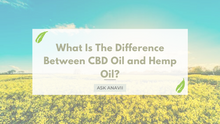The president signs the 2018 Farm Bill on Thursday, December 20th, changing the legal status of hemp and hemp-derived products like CBD Oil.
This will have large implications to the CBD industry, and change the landscape of American farming for the future.
Here’s everything you need to know about the hemp changes stemming from the 2018 Farm Bill.
The Big Takeaways
Hemp prohibition is over. Hemp is officially removed from the Controlled Substances Act (CSA), now classified as a commodity. Farmers and consumers alike can rejoice.
The DEA can no longer interrupt interstate commerce of hemp products.
Hemp production unfortunately has had to take a back seat because of the negative publicity from the 20th century regarding marijuana, however, now the federal government is acknowledging the promising future for hemp farmers. This infographic from Canada Hemp Foods is a great preview of hemp’s myriad applications:

The one thing missing from this infographic is the use of the floral material for cannabinoid production, an aspect of the industry that was forgotten in the 20th century. The 2014 Farm Bill allowed for the re-emergence of growing the flowers for non-intoxicating cannabinoids, like CBD, which has allowed the hemp market to flourish over the past four years.
Federally Regulated Institutions Can Relax (No pun intended)
The Farm Bill allows institutions such as banks, credit card agencies, e-commerce companies, and retailers to conduct business with hemp and hemp products without any butt-in from the DEA.
The Farm Bill is garnering quite the spotlight, even in mainstream media outlets, such as NPR. They tweeted earlier last week, sharing that the legalization of industrial hemp will lead to a boost in the CBD oil industry overall.
Future US Economic Growth
According to Forbes, the legalization of industrial hemp is a huge win for American farmers, who have continually been losing ground due to imports of corn, wheat, and soybean from China. Currently China also produces 50% of the globe’s supply of hemp. If the US hopes to be a leader in the industry, changes for the farming community needed to be made. The Farm Bill allowing stronger hemp production will undoubtedly be a victory for the economy, American farmers, and the average person in America.
According to the US Hemp Roundtable, hemp farmers now also have access to crop insurance and USDA programs for grants, certifications, and other facilities allowing for profitable production.
Research Remains a Priority
The Brookings Institution expounded on the implications of the 2018 Farm Bill noting that research, primarily by hemp remaining a part of the Critical Agricultural Materials Act, will remain an important pillar of the future. There is still much to be learned about hemp and the ways to utilize the crop moving forward, but the future is looking very bright.
CBD Oil
Cannabidiol oil will remain an important staple of the hemp industry, with the majority of hemp farming in the US going toward production of CBD based products. In fact, according to Forbes, hemp grown for CBD oil production can yield $8,000 per acre, in comparison to corn production earning $600.
Federal Safety Requirements

The 2018 Farm Bill will also bring relief to many Americans who may not understand the difference between hemp and marijuana, with a strong reminder that hemp is a non-psychoactive substance. This legislation requires hemp products sold to contain less than 0.3% THC, the psychoactive component of marijuana. Anything more than that level of THC will be considered “non-hemp cannabis” according to federal law.
Quick Recap:
-
Cultivation and farming of hemp is now lawful in US, under various guidelines as submitted to State and US Department of Agriculture
-
The DEA removes “hemp” from the definition of marijuana
-
The FDA will remain involved in the regulation of hemp-derived CBD based products
-
THC (under 0.3%) found in hemp is no longer considered a “controlled substance”
-
No restrictions on the sale, transport, or possession of hemp-derived products
-
Hemp farmers are now eligible to receive crop insurance and access to USDA programs like grants
-
Federally regulated institutions can conduct business with hemp and hemp products companies without interference
-
Research remains a priority and will continue to be done by universities, private organizations, and more to develop new ways to utilize hemp and hemp-derived materials.
The 2018 Farm Bill is a great step forward and will open doors in the future of hemp production. Remember, Anavii Market has you covered with premium, verified hemp-derived CBD oil. We believe in hemp and we believe in you. Check out our full list of products here.









